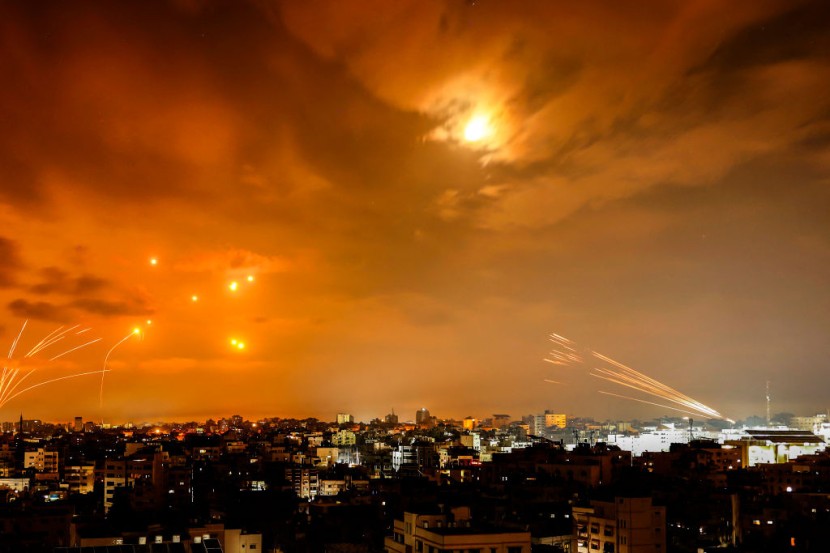Israel's bombardment and ground invasion of Gaza have pushed most Palestinian residents toward the southern city of Rafah along the Egyptian border.

One family in particular, the Abu Jarads, was forced to abandon their once comfortable home in northern Gaza when the Israel-Hamas war erupted nearly three months ago, forcing the family members to adhere to a strict survival routine to cope with the devastating conditions. Every family member is designated a daily task, either collecting twigs to build a fire to cook, or scouring the city's markets for vegetables. But even their best efforts can't mask their state of despair.
An older member of the family, Awatif Abu Jarad, told the Associated Press, "We are living like dogs!" Every day has become a struggle to find food, water, medicine, and working bathrooms whilst living in fear of Israeli airstrikes and the growing threat of illnesses. The AP also reported that the southern city of Rafah had a prewar population of around 280,000, a figure that has skyrocketed to over 1 million in recent days, according to the U.N. agency for Palestinian refugees. Rafah's apartment blocks are overloaded with people as extended families have opened their doors to displaced relatives. Thousands of nylon tents are spread to the west of the city. Thousands of Palestinians are sleeping in the open, despite the cold and rainy winter weather.
Northern Gaza is now under the control of the Israeli army after orders demanded that the residents evacuate to the south. Palestinian civilians were forced to crowd into even smaller places, including Rafah and a nearby sliver of land called Muwasi. These alleged safe spaces are still hit by Israeli airstrikes and shelling. The onslaught has killed over 22,400 Palestinians, according to the Health Ministry in the Hamas-run territory, as reported by the AP.
Awatif's brother, Nouman went on to tell AP, that the conflict drove the family the entire length of Gaza. The intensity of Israeli strikes in the border area sent them south to Al-Quds Hospital in Gaza City. People were then told to evacuate the hospital pushing the Abu Jarad family to travel the 10-kilometer journey on foot until they reached the Nuseirat refugee camp in central Gaza. Like many other Palestinian families, they stayed in an overcrowded U.N. school building for over two months, however, left on Dec. 23, as the Israeli army turned its focus toward Hamas targets in central Gaza refugee camps.
What Was Next?
The family was able to escape to Muwasi, assuming it was the safest option. Nouman, once an accountant, sleeps on the nylon-covered floor with his wife, sister, six daughters, and one grandchild. They sleep out in the open and on their sides to conserve space.
Health officials warn of the growing spread of diseases, especially among children. The World Health Organization has reported tens of thousands of cases of upper respiratory infections, diarrhea, lice, scabies, chickenpox, skin rashes, and meningitis in U.N. shelters. The rapid spread of disease is mainly due to overcrowding and poor hygiene caused by a lack of toilets and water for washing.
The Abu Jarad family dug its own makeshift toilet attached to the tent to avoid communal bathrooms. Still, the family is vulnerable to disease.
"My granddaughter is 10 months old, and since the day we came to this place, she has been suffering from weight loss and diarrhea," Majeda, Nouman's wife, told the outlet.
Nouman said he and several of his younger relatives collect jugs of water from one of the public pipes nearby, water that is exclusively used for washing and not suitable for drinking. Next, they head to one of the dozens of drinking water tankers dotted across the city, where they wait in line for hours.
Food prices have shot up as Gazans are facing acute food and medicine shortages and are largely dependent on aid and supplies that trickle in through two crossings, one Egyptian and one Israeli. More than half a million people in Gaza - roughly a quarter of the population - are starving, the United Nations said in late December.









